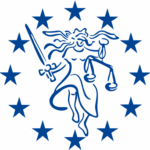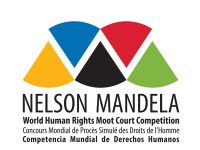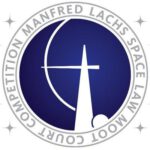Moot Courts
“Moot Court is a legal boot camp that takes your legal skills to the next level” – Nataliia Vodko, Vis Moot Alumna
Moot court generally refers to mock trials in which law students practice and reenact trials. The purpose of a moot court is to promote practical training and teach students how to approach and resolve current legal issues. They enhance advocacy, legal research, and writing skills, and help improve students’ understanding of the intricacies of the theories and concepts taught in the classroom. They can also attract students who are alienated by traditional teaching methods.
More than other teaching methods, moot courts are very commonly used. There are many established organizations that use moot courts in a competitive manner to motivate and excite students about legal education. The Method Toolbox on Moot Courts created by MELE contains a detailed guide on the types of moot courts, the benefits of moot courts as a teaching tool, and the procedures, participation, and planning of moot court competitions.

“There are so many benefits. Moot Court is like a legal boot camp that pushes your skills to the next level. Moot Court demands rigorous legal research to support arguments effectively. This skill has proven crucial in my professional work, where thorough research is essential to build strong cases. Also, the Moot Court is a team effort, teaching participants to work collaboratively towards a common goal. These teamwork skills are valuable in any legal setting that involves working with colleagues, clients, or co-counsel.”
Nataliia Vodko, Vis Moot Alumna
“Moot Court is about finding the best arguments and in fact using the law for making the best case for you client… In the beginning most students are newcomers, but in the end they might have become experts!”
Professor emeritus Dr. Dr. h.c. mult. Helmut Rüssmann
Testimonial of Professor emeritus Dr. Dr. h.c. mult. Helmut Rüssmann

“Confidence is key, standing out will set you apart! Including things like hooks and your mannerism, the way you present your arguments must be unique! … most impotantly have fun! You must enjoy your pleeding as well as your wrtiting, one key to success is to enjoy it!”
Coach Elinam de Souza
“Teamwork makes the dream work – a Moot Court is a team effort, therefore effective communication and cooperation within the group are vital! … A Moot Court gives you the opportunity to meet great people and network for the future! Take your participation seriously, it´s a lot of work but also a lot of fun and don´t forget to enjoy the journey!”
Coach Pieter Van Vaerenbergh

Guidebook on Mootcourts
Here you can download the guidebook on Moot Courts as a innovative teaching method as a complete file:
Here you can also find the guidebook divided into its individual chapters:
- Chapter 1: What is a Moot Court
- Chapter 2: Types of Moot Courts
- Chapter 3: Why to Have a Moot Court in Educational Process
- Chapter 4: What are the Benefits of Moot Court Teaching
- Chapter 5: Moot Courts as a Sucessful Tools for Teaching Law
- Chapter 6: Set up a Moot Court
- Chapter 7: Selection Process
- Chapter 8: Preparation Process
- Chapter 9: At Moot Court Competition
- Chapter 10: Valorisation during and after Moot Court
- Chapter 11: Fundraising for Participation in Moot Court Competition
- Annex 1: Overview of Moot Courts
- Annex 2: Reccomended Literature
- Annex 3: Testimonials

The Willem C. Vis International Commercial Arbitration Moot (Vis Moot). The Competition, introduced in 1994, is an annual international commercial arbitration competition. It is followed by various pre-moots worldwide. It is organised by the Association for the Organization and Promotion of the Willem C. Vis International Commercial Arbitration Moot.
For more information on Vis Moot: https://www.vismoot.org/.

The European Law Moot Court (ELMC). The competition is organised in the field of European Union Law and simulates a proceeding before the Court of Justice of the EU. It is organised by ELMC Society and first introduced in 1988.
For more information ELMC: https://europeanlawmootcourt.eu/.

The Philip C. Jessup International Law Moot Court Competition (Jessup). The Competition, established in 1960, is a simulation of a fictional dispute between countries before the International Court of Justice. It is organised annually by the International Law Students Association.
For more information on Jessup: https://www.ilsa.org/about-jessup/.

Nelson Mandela World Human Rights Moot Court Competition. This Competition on international human rights law issue, is organised by University of Pretoria, the United Nations Human Rights Council Branch, and the American University Washington College of Law. The first edition of the Competition was held in 2009.
For more information on this Moot Court: https://www.chr.up.ac.za/worldmoot.

The Central and Eastern Europe Moot Competition (CEEMC). The Competition was founded in 1995 by the British Law Centre. It simulates a preliminary reference from a fictional EU Member State to the Court of Justice of the EU.
For more information on CEEMC: https://ceemc.co.uk/.

Telders International Law Moot Court Competition. The Competition, organised by Grotius Centre for International Law of the University of Leiden, has been held each year since 1977. It simulated a state dispute before the International Court of Justice.
For more information on this Moot Court: https://www.universiteitleiden.nl/teldersmcc/competition.

PAX Moot Competition. The Competition focuses on the issues of Transnational Law and Private International Law. It was started in 2012, by PAX project partners.
For more information on the Pax Moot: https://www.paxmoot.eu/.

Manfred Lachs Space Law Moot Court Competition. The Competition simulates procedure before the International Court of Justice. It was established in 1992 by the International Institute of Space Law, focusing on issues of space law.
For more information on Manfred Lachs Space Law Moot Court: https://iisl.space/lachsmoot/.

